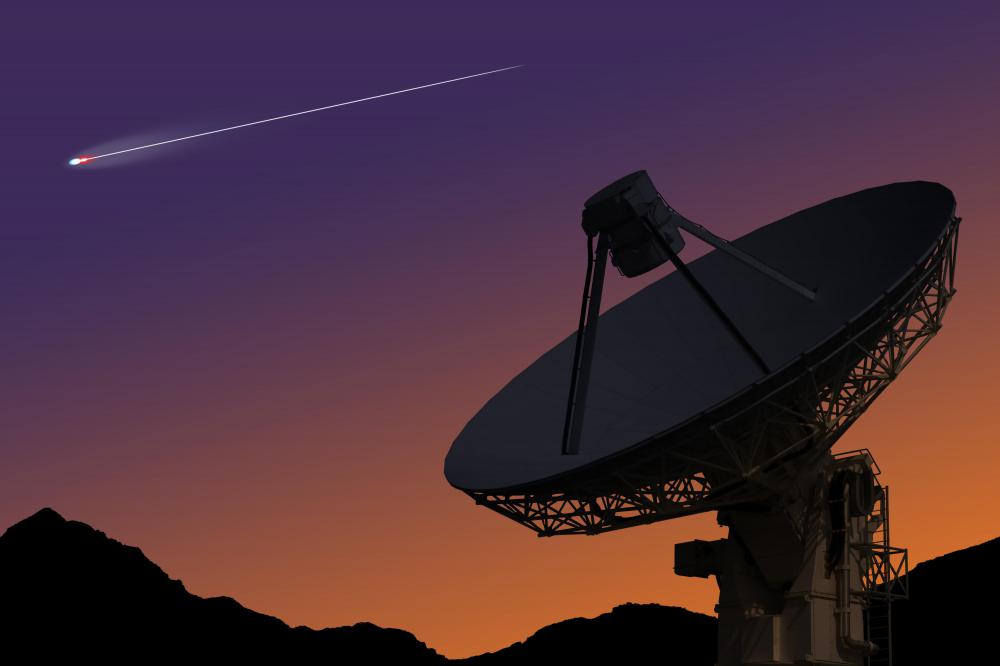At WiseGEEK, we're committed to delivering accurate, trustworthy information. Our expert-authored content is rigorously fact-checked and sourced from credible authorities. Discover how we uphold the highest standards in providing you with reliable knowledge.
What are the Different Physicist Jobs?
A physicist is a scientist who studies the physical makeup of the universe. This can range from astrophysicists, who study the behavior of stars and celestial bodies, to particle physicists, who seek the tiny structures that make up all matter. Physicist jobs include positions in education, research, and space exploration. Most physicist jobs require advanced degrees, such as a doctorate or master’s degree, although less qualified persons can work in support positions.
The study of physics goes back to the beginnings of science and includes such legendary figures as Aristotle, Albert Einstein, and Stephen Hawking. In modern times, the field is broken into many specialized sub-fields, including astrophysics, nuclear physics, and particle physics. All these fields are constantly growing, as ongoing research makes new discoveries on a regular basis. A large number of physicist jobs are in higher education, as professors and instructors teach the next generation of physicists. These teachers must remain abreast of all current theories and advances in the various fields of physics.

Universities also employ numerous research physicists, as do government agencies and private enterprise. Physicists with bachelor’s degrees often work as researchers or technicians while completing their doctorates. In the research field, physicist jobs involve exploring the boundaries of known science and seeking the underlying principles of existence itself. Many research physicists work with advanced equipment such as particle accelerators, radio telescopes, or nuclear reactors. Theoretical physicists, who explore possibilities that current science may not be able to demonstrate, also fall into this category, which includes renowned figures like Einstein and Hawking.

Other physicist jobs are in the applied sciences rather than theory and research. For example, a nuclear physicist may work in a nuclear power facility or for a regulatory agency, ensuring that such facilities are operated according to international standards. Optical physicists can develop new uses for lasers or fiber optic networks. Some astrophysicists interpret the data from radio telescopes and space telescopes. Others work for national space exploration agencies or in the growing field of private space travel.

The fields of medicine, geology, and computer science also include physicist jobs. Nuclear medicine, magnetic resonance imaging (MRI), and even nanotechnology require technicians who are expert in both medicine and physics. The frontiers of computer information storage often involve miniaturization, requiring physicists who understand how matter operates on a microscopic level. Geophysicists explore the physical principles behind earthquakes, tsunamis, and other natural phenomena that can affect life in fundamental ways.
AS FEATURED ON:
AS FEATURED ON:














Discussion Comments
I think if you want to really get into the research side of things with any kind of scientist job you need to have a good grasp on how to write grant proposals.
Especially when you are just starting out as I understand that a lot of people in entry level jobs end up writing and researching grant proposals rather than doing actual physics jobs.
The money has to come from somewhere and people aren't going to give it to you unless you can give them a reason to. Luckily universities need to make names for themselves with any kind of discovery, so they are more willing to fund abstract physics rather than just things with immediate applications.
I don't think most people realize how much physics research goes on to have practical applications.
For example I was reading about how a physicist helped develop the algorithms that compress data so that .jpeg files can work properly.
So, without someone doing what probably seemed like fairly abstract and perhaps even pointless research at some point, we wouldn't be able to plaster photos all over the internet with such ease.
Physics today is often seen as a really geeky, non practical subject and it really isn't.
Post your comments